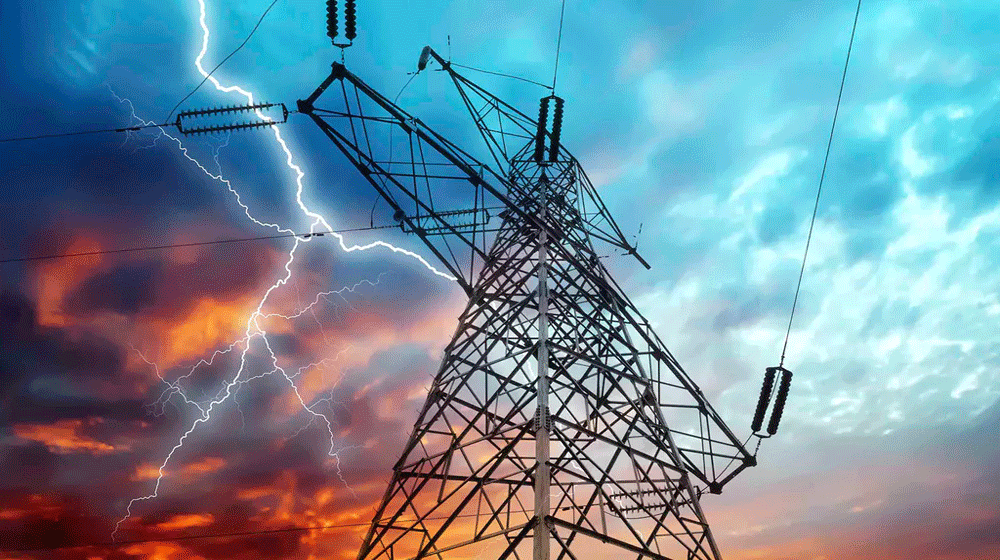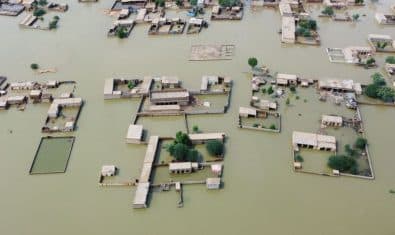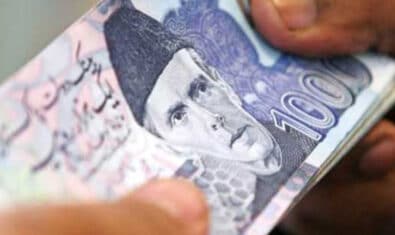Independent Power Producers (IPPs) have issued a clarification in response to media coverage about the Inquiry Report over alleged Power Sector Losses.
In response to the recent reports appearing in media on the Inquiry Committee’s Report over alleged losses in the power sector, the Independent Power Producers Advisory Council (IPPAC) in clarification has categorically rejected the allegations being attributed to such report.
The reports appearing in the media make unsubstantiated allegations against the Independent Power Producers (IPPs), accusing them of having unfair agreements, and misappropriation in tariff and fuel consumption rates.
“Neither the IPPAC nor any IPP was consulted or approached in preparing of the report or its contents. The allegations being leveled on the IPPs are ill-conceived, unfounded, baseless and disappointing, which is causing serious damage to our reputation,” said the IPPAC.
The IPPs, the clarification says, have given their sweat and blood for the development of Pakistan at a time when no one was willing to invest in the country. The IPPs have empowered an uncertain economy, which had not witnessed such a sizeable quantum of Foreign Direct Investment ever in the past.
The clarification says that while the government has not paid the IPPs for years, and IPPs are at the brink of default being owed an amount of approximately Rs 600 billion, they still continue to remain available to provide an uninterrupted supply of electricity for the country, always keeping the greater national interest at the forefront.
Previously, nine IPPs had already given a lot of relaxations to the government in the form of a settlement agreement, keeping in mind the national interest. Yet it was the government that has been unable to obtain formal approval(s) to implement the same; hence that opportunity has been lost.
The settlement agreement was consented to by such IPPs that had won the Arbitral Award by the London Court of International Arbitration (LCIA) in 2017 for the recovery of unpaid capacity payments, which had been deducted in contravention of legally valid and binding Power Purchase Agreements (PPAs).
IPPs are of the view that similar witch-hunting exercises in the past have caused immense damage to the investment climate and economic prospects of the country, and it will again lead to the same negative results.
The IPPs have always remained available to engage in a meaningful dialogue with the government to discuss and find an amicable solution to the most pressing needs of the country. In the prevalent conditions, given the Covid-19 Pandemic, the IPPAC and IPPs stand ready to do their part to help the Pakistan economy and nation during this time of need, in addition to providing uninterrupted power supply.






















1F THESE IPPS ARE SO WILLING TO SOLVE THE ISSUES FACING CORRUPTION IN ITS RANKS & FILES,THE WHY THEY ARE ERECTING BARRICADES IN THE WAY OF INVESTIGATINONS & AUDITING THEIR ACCOUNTS.
THE CASE IS STILL PENDING IN PAKISTANI COURTS.??????
The Solution to the Pakistani Power Imbroglio – Part 2
The Sugar-Power Paradox
Pakistan sugar mills,make sugar,at say,a Total Cost,of Rs 60/kg,sell it,at Rs 65/kg,when the import price (duty free) would be,say Rs 30/kg.In addition,the stocks of sugar,liened to the banks,are liquidated by exports,by selling the sugar,in the export markets,at Rs 30/kg. Hence, the sugar mills are paid Rs 30/kg,as subsidy.dindooohindoo
However,it must be noted that subsidy of Rs 30/kg,or the higher sugar price,paid by Pakistanis, HAS BEEN PAID,IN A SIGNIFICANT PART,BY THE SUGAR MILLS,to the farmers,the state (as taxes),and to the bank (as interest).The nation has received stocks of sugar, produced a strategic input,and kept millions employed and nutritious – in lieu of the subsidy,and import proection.
Therefore,the SUBISDY ON SUGAR,is not the same,as the CAPACITY CHARGE,paid to IPP/ RPPs.The State receives nothing,in lieu of the capacity charge,as,in theory, no power is produced by the IPP/RPP,at all.
Doom No.1 – Capacity Charges,in a No-Power scenario
The Capacity Charge paid to IPP/RPPs – which is a dead loss,to the state – as the IPP/RPP,will repatriate the money,to the overseas principals.The Capacity Charge is paid,irrespective of power demand, evacuation issues and Force Majeure events,and also,new power corridors and West and Central Asia.The capacity charge,is also paid,notwithstanding,peak and base load power plants.
Solution No.1 to Doom No.1
The State has to terminate the capacity charge agreements,due to the COVID Force Majeure,as this event will destroy power demand for ever,as also change the power corridors in West and Central Asia.COVID was planned to ensure financial forfeitures and preclosures. There is no DESTRUCTION OF INDUSTRY – DUE to fire,or an accicent – and so,there is no loss to insurers.The Millions,who will die of COVID,would have died in any case,it is,thus a timing loss – and there is no investment loss,to the insurers,as the claims will be paid, from the sharp rise,in new premiums (by new scared and panicked and hapless sentients).There is no “Loss of Business” Insurance Policy,in vogue – as it is expensive,and a compendium of sophistry.
When insurers do not LOSE,due to a disaster – they gain exponentially – as everyone will insure,for the unknown – especially,”loss of business” policies – which are LOP (Loss of Profit Policies – and very expensive).This is a sure sign,of a man made virus – with a financial, economic,military and political objective.
This is the right time,to 1st kick out the RPPs – as they can physically exit,at will – with a few contingencies.Then the IPPs,have to forfeit the capacity charges – for those projects,where APM in USD,has already recouped the EQUITY,of the project cost.The IPP/RPPs have to partake in the realties of the energy paradign,in light of the Force Majeuere world.Even the Hague will accept this logic – as the continued operations – will be a prime case,of
rapacious profiteering.Capacity charges have to be forfieted,by all the IPPs,with USD-APM,and,for others,the capacity charges have to be drastically cut down,AND,if needed,the liquid fuelpower sector,can be nationalised.
Nationalisation will have no impact on FDI etc.,as the prime investor is PRC – which will,thus, not bother about the implications of PPA termination,or Power plants takeover. In a world of economic ruin,the PRC is sitting on 3-4 Trilion USD,of US-DEBT and Gold.
Solution No.2 to Doom No.1
The Capacity charges have to be re-negotiated – on purely technical reasons.The engineering and maintenance supply chain,of power plants,will be destroyed – as the suppliers will be busted,and those in operation,will have shortages of staff and inputs.Thus,the IPPs will ultimately default,on their capacity commitments.If the IPP can claim Force Majeure,w.r.t their engineering supply chain,the State,can also invoke Force Majeure,on their commitments,to profiteering clauses,in the PPA.
Besides,with the crash in power demand, the technical life of the power plants will increase, as there will be,less usage,and depreciation and damage.Due to the disaster in the power sector,there will be less R&D,and so,lesser risk of technical or technology obsolescence.
In view of the above,the capacity charges have to be drastically reduced,and/or forfeited
Solution No.3 to Doom No.1
In the COVID scenario, and in view of the above, the high marginal cost IPP/RPP and SOE,and also,old power plants – whose engineering supply chain will collapse – can be shut down,and kicked out – and the resultant cost saved – even on,revised power demand estimates,can be shared with the residual IPPs,in terms of higher power tarriffs (in lieu of elimination of capacity charges,PPA restructuring and eradication of high cost power plants)
It might also be noted that,with the crash in power demand,and possibly agri activities, the hydel power plants of Pakistan,might be able to take over the peak load power demand – and so,gas-combined cycle-liquid fuel-naptha based plants – MIGHT not be required – and,if required,will need to be negotiated,in light,of the new environment.
Thus,in addition, there can be no basis,for payment of capacity charges,for peak load IPP/RPPs,as,in the new power demand matrix – there may be no peak demand, and the peak demand,may be met,by hydro power plants.In any case,in a free market,for peak load power,or a supplier’s market, there is no case for capacity charges,in a nation,like Pakistah – as there was,in the past,enough residential and industrial peak demand,and grid disasters – with ample scope for the IPP,to make exorbitant profits.